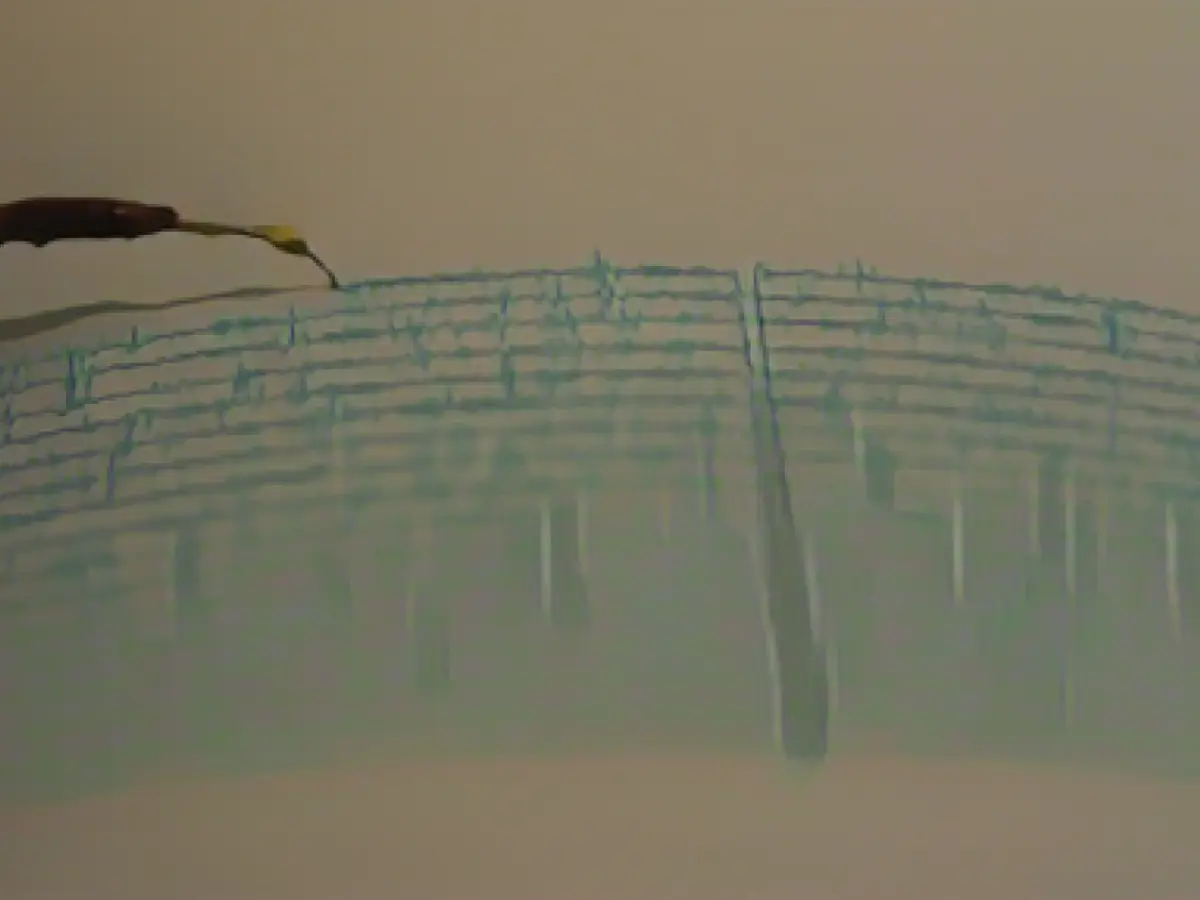Japan hit by tsunami waves after severe earthquake
The quake struck at around 4.10 pm (local time, 08.10 am CET) on Monday in the Noto region of Ishikawa Prefecture. According to new data from the US earthquake observatory USGS, it had a magnitude of 7.5 and was preceded and followed by a series of earthquakes at intervals of just a few minutes.
"All residents must move to higher ground immediately", the public broadcaster NHK said due to the risk of tsunami. The other Japanese broadcasters also interrupted their programs to warn people of the impending tidal waves. A 1.20 meter high tsunami wave was reported from the city of Wajima just over ten minutes after the severe earthquake.
The Pacific Tsunami Warning Center (PTWC), based in the US state of Hawaii, stated that dangerous tsunami tidal waves were possible within a radius of 300 kilometers around the epicenter of the quake. The Japanese Meteorological Agency warned that the waves on the north coast of central Japan could be up to five meters high.
According to the government, the operation of nuclear power plants in Japan was not initially affected by the earthquakes and tidal waves. "It has been confirmed that there are no anomalies at the Shika nuclear power plant (in Ishikawa) and other power plants as of now," said government spokesman Yoshimasa Hayashi.
Japan is located on the so-called Pacific Ring of Fire, where tectonic plates collide. Earthquakes and volcanic eruptions occur frequently in this area. This is why Japan has strict building regulations and earthquake drills are held regularly.
On March 11, 2011, the east coast of Japan was hit by a magnitude 9.0 earthquake and a tsunami. The natural disaster claimed the lives of 18,000 people. The tsunami also hit the Fukushima nuclear power plant, causing huge explosions and a meltdown in three reactors. It was the world's worst nuclear accident since the Chernobyl disaster in 1986.
At the beginning of May 2023, Ishikawa Prefecture was shaken by a magnitude 6.3 earthquake. One person was killed and 49 others suffered injuries.
Read also:
- This will change in December
- Fireworks and parties ring in 2024 - turn of the year overshadowed by conflicts
- Attacks on ships in the Red Sea: shipping companies avoid important trade route
- Houthi rebels want to launch further attacks despite international coalition
The US earthquake station USGS reported a series of earthquakes following the 7.5 magnitude earthquake in Japan, indicating seismic activity in the region. Due to the risk of tsunami, Japan urged residents to move to higher ground, and the US Pacific Tsunami Warning Center warned of possible dangerous tsunami waves. The Shika nuclear power plant in Japan, which was initially unaffected by the earthquakes and tidal waves, is located in the same area as the USGS earthquake station. This region is known for its potential for heavier earthquakes and tsunamis, being located on the Pacific Ring of Fire.
Source: www.stern.de







